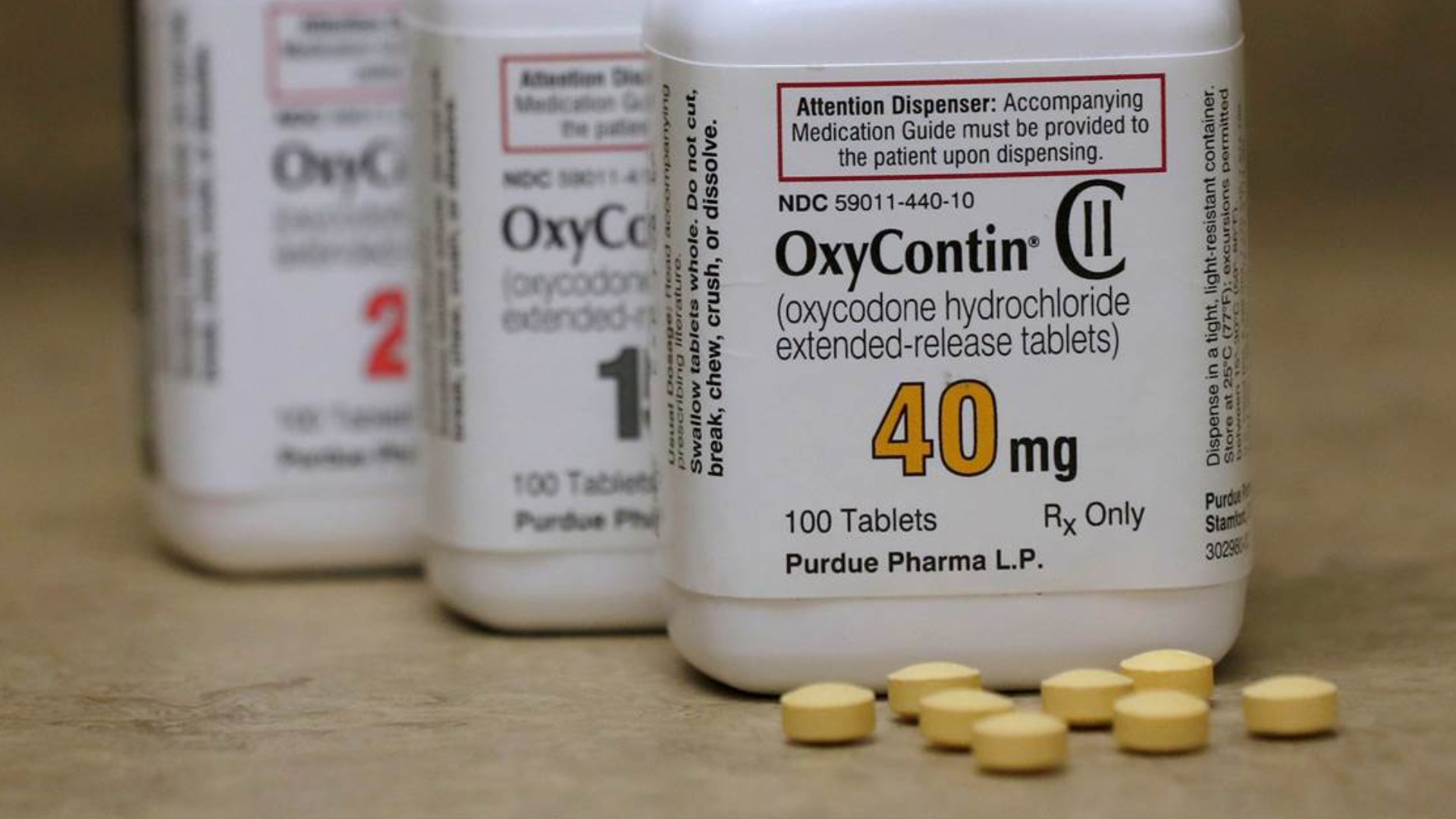PORTLAND, Maine — Editors note: The video above aired July 8, 2021.
Nine hospitals in the Northern Light Health system have sued more than a dozen pharmaceutical companies, national pharmacy chains, and four Maine marketing representatives for damages, arguing they directly caused Maine's opioid epidemic and dramatically increased expenses for the hospitals.
Hospitals including Northern Light Eastern Maine Medical Center in Bangor, Mercy Hospital in Portland, and Inland Hospital in Waterville, filed the suit in Cumberland County Superior Court.
The suit was initially filed Sept. 10 in Cumberland County Superior Court but was transferred to U.S. District Court. However, the hospitals have filed an emergency motion seeking to have the case returned to state court before it is transferred to the National Opiate Litigation MDL.
Named in the suit are pharmaceutical companies including Mallinckrodt, Par Pharmaceuticals, Teva Pharmaceuticals USA, and Johnson & Johnson; distributors Cardinal Health and McKesson; and pharmacy chains CVS, Rite Aid of Maine, Eckerd Corp., and Walmart.
Also named are four Maine men who worked in the pharmaceutical industry: Jeff Saucier of Sabattus, a former sales consultant for Endo Pharmaceuticals; Jason Nagel of Cape Elizabeth, director of trade relations for Teva Pharmaceuticals; Frank Neel of Bangor, a former pain care sales specialist for Cephalon; and Marc Blattstein of Gorham, a former specialty sales representative for Forrest Laboratories.
The suit charges the companies and four individuals with negligence, nuisance, unjust enrichment, fraud and negligent misrepresentation, fraudulent concealment, and civil conspiracy.
According to the suit, the defendants used unfair and misleading marketing to convince doctors and patients that opioids could safely be prescribed for chronic pain and then conspired to drive up demand for, and supply of, prescription opioids.
"To meet the artificially inflated demand pills, defendants sold, shipped, and dispensed opioids in quantities that could not possibly have been medically justified and in the face of clear evidence that opioids were being diverted for illegitimate uses," the suit stated. "Defendants' plan succeeded, and they recorded multibillion-dollar profits as a result."
Citing statistics from the federal Automation of Reports and Consolidated Orders System, the suit stated the companies manufactured, distributed, or dispensed opioid pills in Maine as follows:
- Mallinckrodt: 217 million pills manufactured
- Par Pharmaceutical: 135 million pills manufactured
- Actavis: 56 million pills manufactured
- Purdue: 22 million pills manufactured
- Teva: 3 million pills manufactured
- Endo: 1.3 million pills manufactured
- AbbVie: 782,000 pills manufactured
- Cardinal: 176 million pills distributed
- McKesson: 91 million pills distributed
- H.D. Smith: 50 million pills distributed
- Eckerd: 38 million pills distributed
- Amerisource Bergen: 20 million pills distributed
- Anda: 3 million pills distributed
- Walmart: 47 million pills distributed; 47 million pills dispersed
- Rite Aid: 26 million pills distributed; 143 million pills dispensed
- CVS: 18 million pills distributed; 43 million pills dispensed
- Walgreens: 9 million pills distributed; 12 million pills dispensed
According to court documents, in 2018 Maine saw 202 opioid-related overdose deaths, or 23.4 deaths per 100,000 people, compared to a national rate of 14.6 deaths per 100,000 people. In just the fourth quarter of 2020, 102 people died of opiate overdoses.
The hospitals seek compensatory damages up to three times the alleged losses and punitive damages.
In a statement to NEWS CENTER Maine, Northern Light Health said, "The opioid manufacturers and distributors created an ongoing epidemic throughout the state of Maine. Individuals and families have had their lives wrecked, and Maine’s hospitals have borne the brunt of financial losses in treating opioid-related health problems, costing our hospitals hundreds of millions of dollars for providing uncompensated care for these victims."
NEWS CENTER Maine contacted attorneys representing all of the defendants. None of them immediately replied on Thursday.

